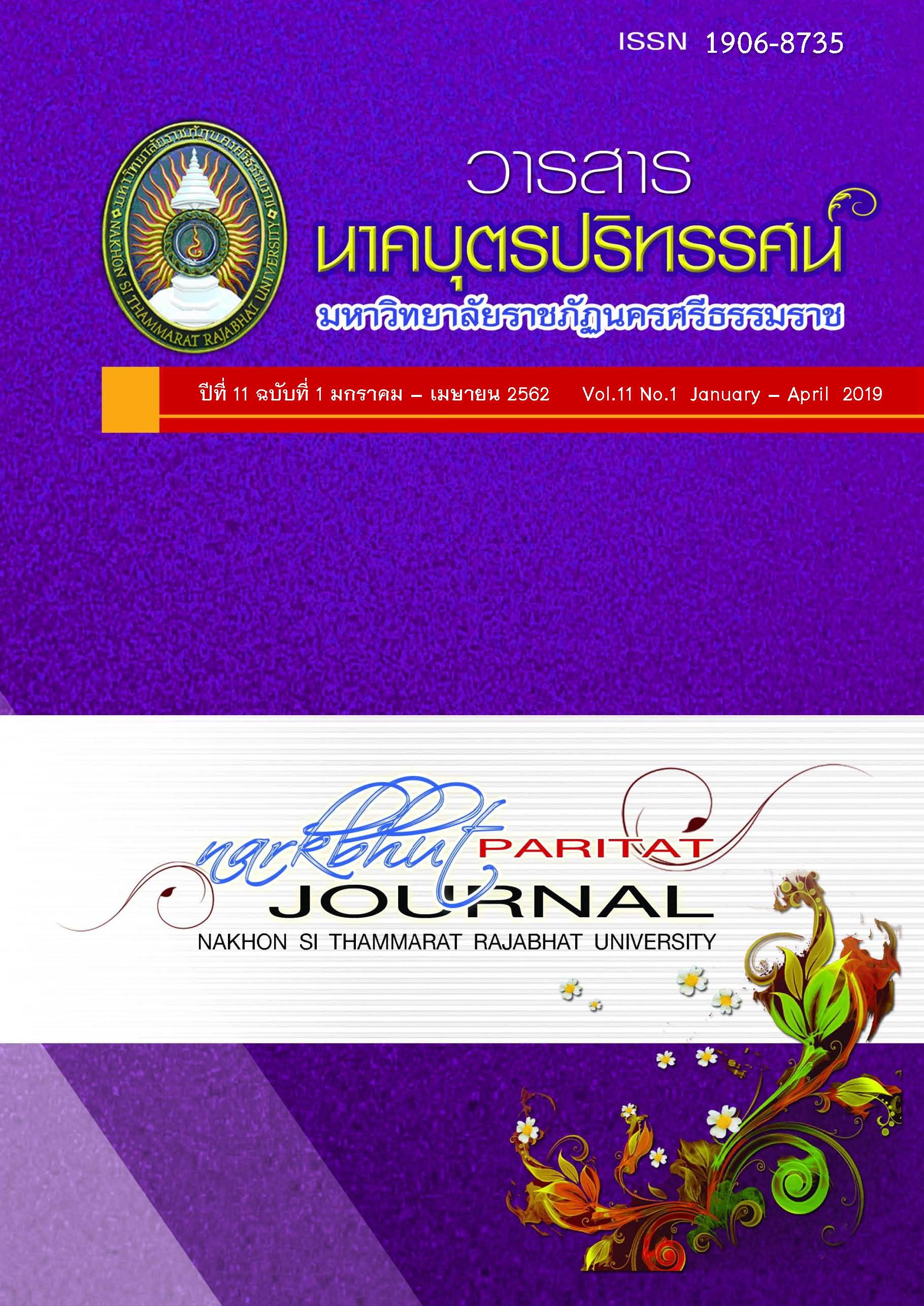การพัฒนารูปแบบการใช้บริการหนังสือธรรมะของผู้สูงอายุในเขตอำเภอเมืองสุราษฎร์ธานี จังหวัดสุราษฎร์ธานี The Development of Dhamma Books Service Usage of Elderlies in Mueang District, Surat Thani Province
Main Article Content
Abstract
This research is a mixed methods research aiming to study the current condition of Dhamma books usage of Elderlies in Mueang district, Surat Thani province in order to investigate the Dhamma books management method addressing the need of elderlies in question and develop the Dhamma books service format for them. According to the study result, in the first objective of studying the current condition of Dhamma books usage of Elderlies in Mueang district, Surat Thani province, on the personal experience subject, the study found that their physical and other factors had changed. These changes caused stress leading to the change of mind. On the attitude, more elderlies broadened the Dhamma books reading skills and entered the Lifelong Learning system. Mostly, they participated in an association, club and public library increasingly. On the service center role, more elderlies were encouraged to the Dhamma books service in the contemporary society which required support from the government and private sectors as well as public and communities. In the second objective of investigating the Dhamma books management method addressing the need of elderlies in Mueang district, Surat Thani province, the results indicated that the elderlies also preferred the religious/Dhamma information and took part in activities arranged by temple and government agencies. In the third objective of developing the Dhamma books service format for elderlies in Mueang district, Surat Thani province, according to the study on the Dhamma books service format for them, the results revealed that they wanted Dhamma books service at temples or Elderly Club in each district free of charge Dhamma books or audio books recorded by those having Dhamma book ability. On receiving information, it found that the elderlies felt familiar with radio rather than television or other types. The overall results found that recreation activities including friends, neighbor, relatives and descendants used media to relax or pass the time. However, the religious activities reflected that the relevant agencies should promote the elderlies to engage in activities in the major religious holidays regularly.
Article Details
References
Barrett, Julia. (2005). "Support and information needs of older and disabled older people in
the UK."Applied Ergonomics. 36, 2: 177–183.
Bates, Marcia J. (2010). “Information behavior.” Retrieved July, 20 2014 Form
http://pages.gseis.ucla.edu/faculty/bates/articles/information-behavior.html
._______. (2005). “An introduction to metatheories, theories, and models.” In
Theories of information. Medford, N.J.: Published for the American Society
for Information Science and Technology by Information Today.
Brenda Dervin. (2011). Retrieved January 14, 2015, From http://en.wikipedia.org/wiki/Brenda_Dervin
Buckland, M. K. (1991). “Information as thing.” Journal of the American Society for
Information Science. 42, 5: 351-360.
Case, D. (2007). Looking for information : a survey of research on information seeking, needs,
and behavior. 2 nd ed. New York: Academic Press/Elsevier Science.
Chatman, Elfreda A. (1999). “A theory of life in the round.” Journal of the American Society for
Information Science. 50(3): 207-217.
Eriksson-Backa, K. (2012). “Health information literacy in everyday life: a study of
Finns aged 65–79 years.” Health Informatics Journal. 18: 83-94.

